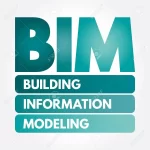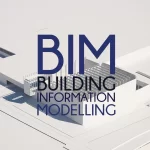knowledge and skills needed to manage electrical engineering projects efficiently. This
course covers the technical aspects of electrical design, project management, and
documentation, focusing on the role of the electrical technical office in various construction
and engineering projects.
– Equip participants with knowledge of electrical systems design and calculation methods.
– Familiarize participants with the preparation and review of technical documents,
specifications, and reports.
– Enhance skills in project management and coordination with other engineering disciplines.
– Develop proficiency in using software tools relevant to electrical design and project
documentation.
– Overview of the electrical engineering field and its importance in construction.
– Roles and responsibilities of the electrical technical office in project execution.
– Communication and coordination with other engineering disciplines.
2. Electrical Systems Design:
– Fundamentals of electrical system design, including power distribution and lighting.
– Load calculations and demand analysis for various types of buildings.
– Design of electrical panels, circuits, and wiring systems.
3. Project Documentation:
– Preparation of technical specifications and project reports.
– Understanding and reviewing electrical drawings (single-line diagrams, layout plans).
– Documentation management and filing systems for project records.
4. Standards and Regulations:
– Overview of international and local electrical standards and codes (e.g., NEC, IEC).
– Compliance with safety regulations and guidelines in electrical design.
– Understanding of quality assurance in electrical projects.
5. Project Management Skills:
– Basics of project management principles and practices.
– Scheduling and resource allocation for electrical works.
– Budgeting and cost estimation techniques for electrical projects.
6. Software Tools for Electrical Design:
– Introduction to software tools used in electrical design (AutoCAD, Revit, ETAP).
– Hands-on training in creating and modifying electrical drawings.
– Using software for load calculations and analysis.
7. Case Studies and Practical Applications:
– Review of real-life electrical project case studies.
– Practical exercises in preparing electrical design documentation.
– Group discussions and problem-solving sessions based on project scenarios.
8. Evaluation and Certification:
– Pre- and post-training assessments to measure knowledge acquisition.
– Final project presentation to demonstrate skills and understanding.
– Certification of completion for participants who meet the course requirements.
Target Audience:
– Electrical engineers and technicians.
– Engineering students specializing in electrical or power engineering.
– Project managers and site supervisors involved in electrical projects.
– Professionals interested in enhancing their skills in electrical project management and
design.
– Anyone looking to enter the field of electrical engineering with a focus on technical office
operations.
This course offers a comprehensive foundation for anyone looking to excel in the electrical
engineering domain, providing essential skills for effective project execution in the technical
office environment.






